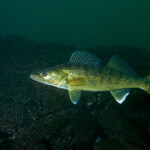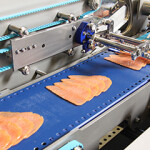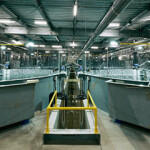Ocean Era gets EPA approval for Velella Epsilon offshore farm

The U.S. Environmental Protection Agency issued a National Pollutant Discharge Elimination System (NPDES) permit to Hawaii-based open-ocean mariculture start-up Ocean Era, bringing the company one step closer to raising fish in the Gulf of Mexico.
Ocean Era’s Florida pilot project, Velella Epsilon, would be located 45 miles south west of Sarasota. The project would farm 20,000 almaco jack, a fish native to the Gulf of Mexico, in one net-pen. The NPDES permit being issued is the culmination of years of work, according to Neil Anthony Sims, the company’s founder and CEO.
“We are pleased to finally receive this NPDES permit for our demonstration net pen trial, after working towards this for more than three years,” Sims told 8 On Your Side. “This is the culmination of a comprehensive environmental review process – as evidenced by the 439-page Environmental Assessment, and the 59 pages of EPA’s responses to comments received from the public. The fact sheet even runs to 14 pages. The overarching finding is that there will be no significant impact from his one small cohort of fish, in one small pen.”
The decision to grant Ocean Era an NPDES permit is already being met with backlash from nonprofits concerned with the amount of feed needed to raise the company’s projected fish total and the resulting waste that would be discharged into the Gulf of Mexico.
“The EPA has not adequately addressed concerns about impacts to human health, the environment and imperiled wildlife,” Center for Biological Diversity Florida Director Jaclyn Lopez said. “We’re also concerned about this project’s influence on red tide and Ocean Era Inc.’s ability to maintain the security of its fish farm during a severe storm.”
A statement from the the Center for Biological Diversity claims that the Velella Epsilon project would create habitat issues for several native, imperiled species in the region including endangered sea turtles and six species of Gulf whales.
“These endangered species can be attracted to the uneaten feed and feces from fish farms and become entangled in the pens, exposed to vessel strikes, and subjected to increased ocean noise,” the statement said.
The organization also claims that “nutrients that will likely be discharged from the fish farm can worsen red tide.”
These concerns were echoed at a virtual public hearing hosted by the Don’t Cage Our Ocean Coalition, a group fighting against the creation and approval of industrial ocean fish farms.
While Sims said he understands concerns from conservation groups and locals, his goal has always been to address environmental issues head-on.
“I have major environmental concerns myself about the entire planet and about our oceans. I am a marine biologist and this is, to my understanding, the best thing that we can be doing for planetary health and for our oceans health and for consumer health is to be growing more of the seafood that we need,” Sims said. “All of the evidence and all of the science that has been conducted around offshore fish pens has shown that as long as the pen is located properly and is reasonably well-managed, it needs to be in deep water further offshore, that there is no significant impact on the water quality or on the sand that is underneath the fish pens.”
Ocean Era now needs permitting from the U.S. Army Corps of Engineers, which will not be holding a public comment period. This has led to opponents of the farm speaking out on their own.






Share